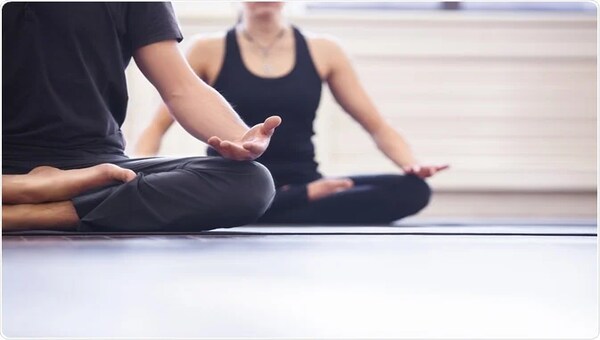The Benefits of Yoga for Stress Reduction and Relaxation

In today’s fast-paced world, the pursuit of relaxation and stress reduction has become more important than ever. Amidst the chaos and demands of daily life, finding a practice that brings balance and tranquility is essential for our overall well-being. Enter yoga—an ancient practice that not only nurtures physical flexibility and strength but also offers profound benefits for stress reduction and relaxation. In this article, we will delve into the myriad ways in which yoga can serve as a powerful tool for alleviating stress and fostering relaxation in both mind and body.
Read More : How to Stay Hydrated During Hot Yoga Sessions
The Connection Between Yoga and Stress Reduction
Yoga is a holistic practice that integrates physical postures (asanas), breath control (pranayama), meditation, and mindfulness. This combination makes it uniquely suited to address stress and promote relaxation. Here’s how:
- Mind-Body Awareness: One of the fundamental aspects of yoga is cultivating mind-body awareness. By focusing on the sensations, movements, and breath during yoga practice, individuals become more attuned to the present moment, shifting their attention away from stressors.
- Deep Breathing: Pranayama, or breath control, is a central component of yoga. Deep, controlled breathing patterns calm the nervous system and activate the parasympathetic response—the body’s natural relaxation mode.
- Muscle Relaxation: Yoga postures involve stretching and relaxing muscles, releasing physical tension stored in the body. This physical release contributes to an overall sense of ease and relaxation.
- Mindfulness and Meditation: Many yoga practices incorporate mindfulness and meditation techniques. These practices train the mind to observe thoughts without judgment, reducing the mental clutter that often leads to stress.
- Stress Hormone Regulation: Regular yoga practice has been shown to lower cortisol levels—the hormone associated with stress. This hormone regulation helps reduce feelings of anxiety and tension.
Benefits of Yoga for Stress Reduction and Relaxation
- Reduction in Stress and Anxiety: Yoga’s focus on breath and mindfulness provides a sense of calm that counters the fight-or-flight response associated with stress. Over time, this can lead to reduced overall stress and anxiety levels.
- Improved Mood: Yoga promotes the release of endorphins, which are natural mood enhancers. Engaging in regular yoga practice can lift your spirits and create a more positive outlook.
- Enhanced Relaxation Response: As you practice yoga, your body becomes more adept at invoking the relaxation response, helping you manage stress more effectively.
- Better Sleep: Stress often interferes with sleep, but yoga can help. Relaxing yoga sequences before bedtime can calm the mind and prepare the body for restful sleep.
- Mindful Coping Strategies: Yoga teaches mindfulness, which can be applied off the mat. Mindful coping strategies empower you to navigate stressful situations with greater composure and clarity.
- Boosted Concentration: Yoga enhances focus and concentration by training the mind to stay present. This newfound mental clarity can improve productivity and decision-making.
- Lower Blood Pressure: Consistent yoga practice has been linked to lower blood pressure levels, promoting cardiovascular health and reducing the risk of stress-related conditions.
Practical Ways to Incorporate Yoga into Your Routine
- Start with Breathing: Begin your yoga journey by practicing deep breathing exercises, such as the 4-7-8 breath or alternate nostril breathing. These techniques can be done anywhere and instantly induce relaxation.
- Morning Stretch Routine: Start your day with a gentle yoga stretch routine. Focus on slow, deliberate movements that awaken your body and set a positive tone for the day.
- Lunchtime Mindfulness: Take a few minutes during your lunch break to engage in mindful breathing or simple stretches. This can help alleviate midday stress and tension.
- Evening Wind-Down: Practice restorative yoga or gentle stretches in the evening to wind down from the day. This can prepare your body for a peaceful night’s sleep.
- Join a Class: Consider joining a yoga class or workshop. Instructors guide you through proper techniques, ensuring you receive the maximum benefits while connecting with like-minded individuals.
- Yoga Nidra: Try Yoga Nidra, also known as “yogic sleep.” This guided relaxation technique induces a state of deep relaxation and rejuvenation, reducing stress and promoting mental clarity.
- Mindful Walking: Combine yoga with the calming benefits of nature by practicing mindful walking. Focus on your breath and sensations as you walk, creating a moving meditation experience.
Read More : How to Improve Your Post-Workout Nutrition for Recovery
Conclusion
In the journey toward relaxation and stress reduction, yoga offers a path that is both ancient and timeless. Its ability to unite body, breath, and mind creates a space where stressors dissolve, and tranquility takes root. By incorporating yoga into your routine, you’re not just embracing physical movement; you’re embracing a holistic practice that empowers you to manage stress, enhance relaxation, and foster a sense of balance in your life. Whether you’re a beginner or an experienced yogi, the benefits of yoga for stress reduction and relaxation are accessible to all who embark on this blissful journey.




